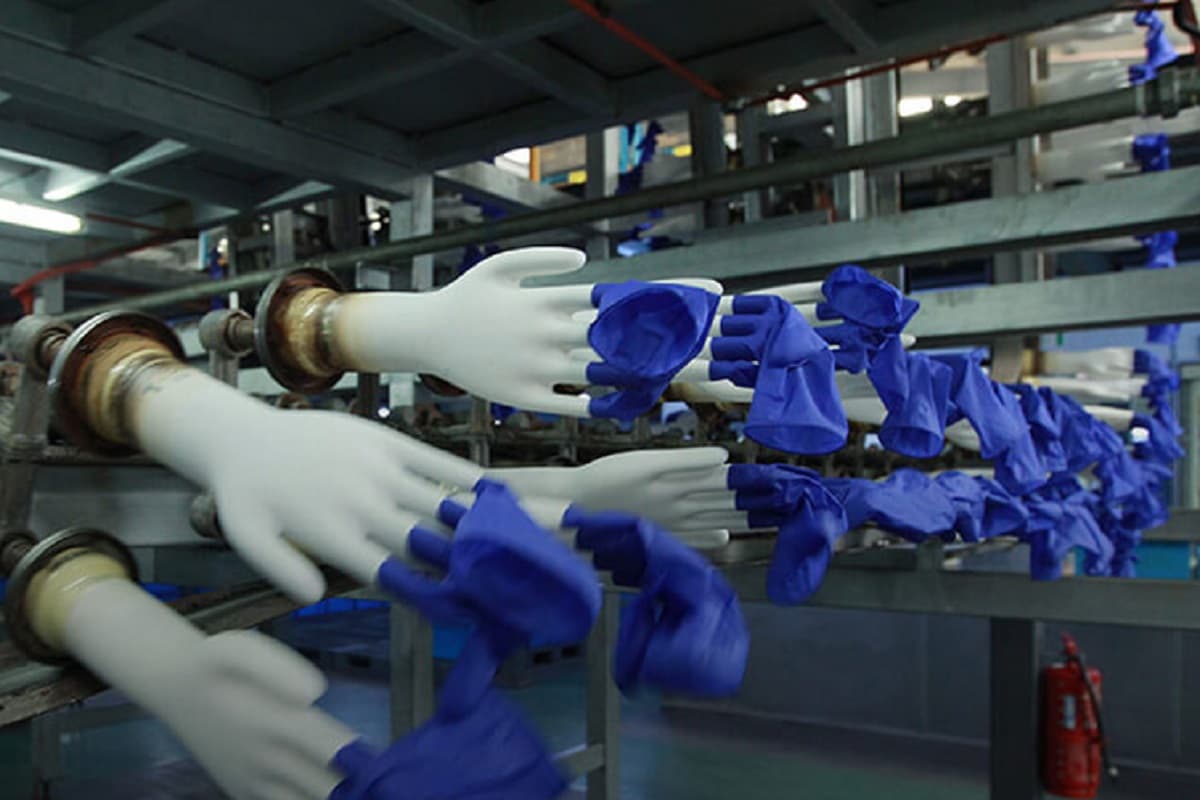
KUALA LUMPUR (July 9): The ongoing presence of forced labour indicators in the Malaysian rubber glove manufacturing industry demonstrates a need for existing legislative and policy measures to go further to address modern slavery, labour exploitation and poor working conditions in supply chains amid increased demand for medical gloves during the Covid-19 pandemic, a July 2021 report published by the UK-based Modern Slavery and Human Rights Policy and Evidence Centre claimed.
According to the research summary of the report titled "Forced labour in the Malaysian medical gloves supply chain during the Covid-19 pandemic”, labour issues in the rubber glove supply chain are longstanding based on International Labour Organization's (ILO) framework.
"Using the ILO’s indicators of forced labour as a framework, our research found evidence of all forced labour indicators before and during the Covid-19 pandemic, with evidence that four of the 11 indicators worsened during the pandemic.
"In addition, there was a significant risk of transmission of Covid-19 among workers in glove factories,” the summary said.
According to the summary, authors of the report include Impactt Ltd contributors Ben Bostock, Emily Day and Rosey Hurst besides Newcastle University contributors James Brown and Alex Hughes.
The summary said the research was conducted between August 2020 and April 2021.
"It took a supply chain approach, including a survey of 1,491 (mainly migrant) workers in Malaysia, 11 interviews with migrant workers and 14 interviews with manufacturers in Malaysia and with government officials, suppliers, and procurement managers in the UK. Surveyed workers and interviewees were asked about their experiences prior to and during the pandemic.
"This research focused on labour issues and indicators of forced labour in the production of medical examination gloves in Malaysia, and supply to the UK’s National Health Service (NHS), during the Covid-19 pandemic. Against the backdrop of an already challenging situation regarding working conditions in this sector, the pandemic placed further pressure on labour standards, due to significantly increased demand for gloves and risks associated with Covid-19 transmission among workers.
"Both before and during the pandemic, the US placed import bans on gloves produced by two major manufacturers in Malaysia due to findings of forced labour. The research sought to evidence the scale of forced labour in the Malaysian medical gloves supply chain during the pandemic and identify opportunities for positive change to prevent and remediate labour issues,” the summary said.
The views expressed in the report are the authors' and not necessarily the Modern Slavery and Human Rights Policy and Evidence Centre's, according to the summary.
The summary said increased demand for medical gloves during the Covid-19 pandemic led to a significant change in the supply chain for medical gloves from Malaysia to the UK’s NHS.
According to allegations in the summary, there was a shift in power towards glove manufacturers with decisions about distribution, pricing, and payment terms more firmly in their hands, increased pressure on existing workers and reduced opportunities for ethical procurement.
"The shift in power to the manufacturers witnessed during the Covid-19 pandemic is unlikely to be permanent, and it is important for improvements in labour standards to be part of future supply chain resilience strategies. One area for further research is to evaluate how UK public procurement performs in relation to issues of social value and the remediation of modern slavery through revisions to UK procurement legislation following EU exit.
"Evaluation of NHS Supply Chain’s evolving systems for labour standards assurance and the UK government’s training modules for ethical public procurement are other important research areas. We also recommend research into the labour recruitment chains operating between migrant workers’ countries of origin and their country of employment, and to logistics workers in supply chains.
"Manufacturers, the Malaysian government, and governments and recruitment agencies in migrant workers’ countries of origin should work together to monitor and improve labour recruitment processes, especially to eliminate fee payment, and provide workers with accessible and accurate information about available jobs. Due diligence in procurement should include prevention, mitigation, and remediation of debt bondage connected to recruitment fees,” the summary said.
Using the 11 ILO forced labour indicators as reference points, the summary claimed that the research found evidence of labour issues in the Malaysian rubber glove manufacturing sector during the pandemic.
The summary claimed that longstanding issues associated with six of the indicators — abuse of vulnerability, deception, physical and sexual violence, intimidation and threats, retention of identity documents, and withholding of wages — were shown to remain constant during the pandemic.
"Issues associated with the indicators of restriction on movement, isolation, abusive working and living conditions, and excessive overtime, are also entrenched but were exacerbated by the pandemic, through the direct health and safety risks of Covid-19 and from pressures placed on production by increased global demand for gloves,” the summary claimed.
Issues connected with one indicator on debt bondage have, however, improved during the pandemic, the summary said.
According to the summary, high recruitment fees and associated loans mean that workers are tied to employers at least until debt is repaid.
"Particularly in the first year of their employment, many workers in the medical gloves industry are at high risk of debt bondage.
"There has been some improvement during the pandemic with movement in the sector towards reimbursing recruitment fees. US import bans in 2019 and 2020 on two Malaysian manufacturers on grounds of forced labour appear to have been influential in promoting wider commitment in the sector to reimbursement.
"A quarter of surveyed workers reported receiving some reimbursement of fee from their employer,” the summary said.
The Malaysian Rubber Gloves Manufacturers Association (MARGMA) could not be immediately reached for a response to the Modern Slavery and Human Rights Policy and Evidence Centre’s report.